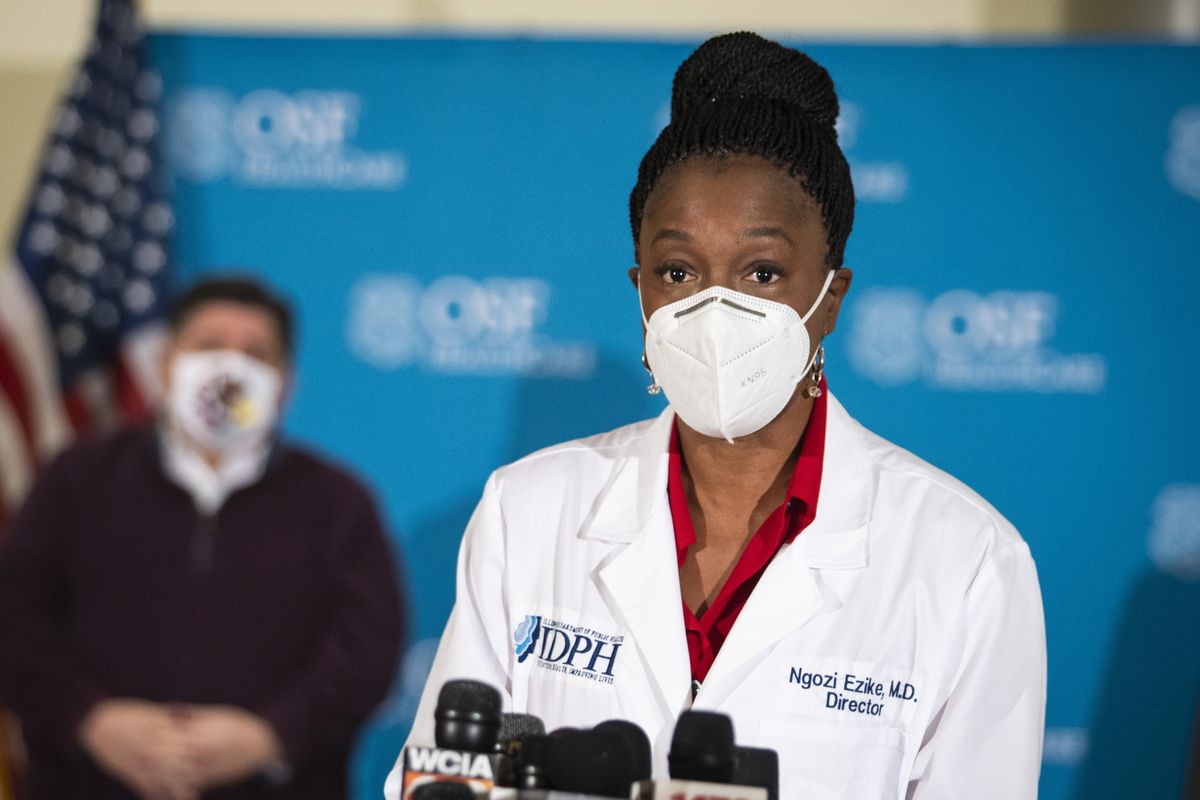The coronavirus has killed an additional 117 Illinoisans and spread to 7,359 more, public health officials announced Tuesday, as the state embarked on an unprecedented vaccination campaign.
The new cases were diagnosed among 92,922 tests, lowering the state’s average positivity rate for an eighth straight day down to 8.6%. It marked the fifth straight day — and the ninth of the last 11 — that the Illinois Department of Public Health has reported fewer than 10,000 new cases.
COVID-19 hospital admissions also continued on a promising downward trend since vaulting to record highs in late November.
As of Monday night, 4,965 beds were occupied by coronavirus patients, with 1,057 receiving intensive care and 598 on ventilators. That’s the first time nightly ventilator usage has dipped below 600 since Nov. 21.
But the state is still reeling from an alarming daily rate of COVID-19 fatalities. Illinois has reported at least 100 deaths for all but two days so far this month, for an average of 150 deaths per day.
The latest victims included 13 Cook County residents and 37 more from across the Chicago area.
The virus has claimed at least 14,509 lives while spreading to more than 863,000 people in Illinois since March.
Graph not displaying properly? Click here.
The state’s first doses of the COVID-19 vaccine were administered Tuesday morning at Loretto Hospital almost nine months to the day after Chicagoan Patricia Frieson became the state’s first known resident to die of the virus that has turned life upside down around the globe.
A total of 10 health care workers lifted their sleeves up for the cameras at Loretto and at a Peoria hospital to receive the historic inoculations. Gov. J.B. Pritzker said about 109,000 frontline hospital workers should take up the state’s first vaccine shipment by the end of the week.
The challenge for public health officials now is to persuade skeptical residents to get the shot when they have access, and to keep following masking and social distancing guidelines over the next several months before vaccines are widely available.
“It’s an important step, but there’s still absolutely another step, as well as the continued mitigations that have to continue,” Illinois Public Health Director Dr. Ngozi Ezike said. “I think everyone has reason to be excited that we are at the beginning of the end.”



















